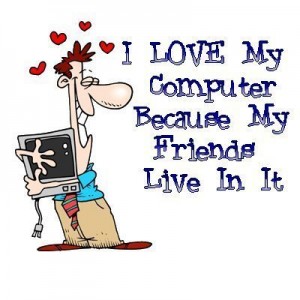 I had the pleasure of speaking on a panel at Social Media Week on the topic of Social Graph Optimization. It’s a complicated subject and one that I really should write a full post on and I promise I will in due time. While this particular post isn’t exactly about that topic, it is driven by some thoughts I had as result of the panel.
I had the pleasure of speaking on a panel at Social Media Week on the topic of Social Graph Optimization. It’s a complicated subject and one that I really should write a full post on and I promise I will in due time. While this particular post isn’t exactly about that topic, it is driven by some thoughts I had as result of the panel.
I have been thinking more and more about the concept of “friends on the Internet”. Look over 6,000 people follow me on twitter- it’s impossible for me to truly be friends with every single one of them. However, by current social Internet standards – I am. They have 100% access ( except in some circumstances) to my social activities and behavior. Sure I prefer some of them to others, but they have no way of knowing this digitally. In Social networking sites currently all relationships are generally created equal.
Twitter, Facebook, Myspace, & etc were all built on this weird concept of validity of numbers. The more people I am connected to, the more power and value I have. While the SIN complex -get it? Strength In Numbers -will always apply, we need to progress to some type of way to establish the strength and validity of social relationships. Who do we consider friends, and what connection are more about status & fluff? With out some way to divide these two camps ( simplifying & assuming their are only two levels of relationships) maintaining well balanced virtual relationships is overly complex. In essence, the current social structure as it stands now is not built to support enduring virtual relationships.
As social society continues to adapt & mirror the best parts of in person communication enhanced with technology, this becomes more and more import. For example, in real life- those who have larger social ecosystems are naturally casually connected to a myriad of people. While these large physical ecosystems exist, people do not transmit all of their likes, dislikes, behaviors, habits, & emotions to the ecosystem as a whole, but rather selectively to various sub communities within the ecosystem based on the trust, relevance and strength of the relationship. I see adapting this type of communication structure into the social space and as a crucial next step for digital communication.
Here’s a peg shot video from just after the panel at Social Media Week. I think it sums up my thoughts nicely.


Pingback: uberVU - social comments()
Pingback: Tweets that mention Knowing Who Your Friends Are- The Future of Social Relationships. | -- Topsy.com()